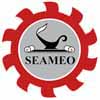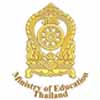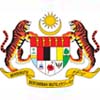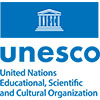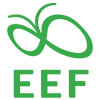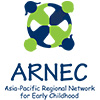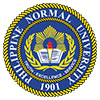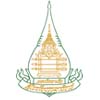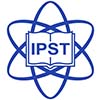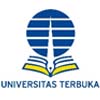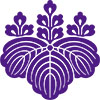HOST ORGANISATIONS
SEAMEO is a regional intergovernmental organisation established in 1965 among governments of Southeast Asian countries to promote regional cooperation in education, science and culture in the region.
The SEAMEO Member Countries include Brunei Darussalam, Cambodia, Indonesia, Lao People’s Democratic Republic, Malaysia, Myanmar, the Philippines, Singapore, Thailand, Timor-Leste, and Vietnam. It embodies 8 Associate Member Countries: Australia, Canada, France, Germany, the Netherlands, New Zealand, Spain and United Kingdom; and six Affiliate Members, namely the International Council for Open and Distance Education (ICDE), the University of Tsukuba (Japan), British Council, and China Education Association for International Exchange (CEAIE), UNESCO Asia Pacific Centre of Education for International Understanding (UNESCO APCEIU), and British Columbia Council for International Education (BCCIE).
Over the past five decades, SEAMEO has developed 26 specialist institutions throughout Southeast Asia which provide regional leadership in human resource development and diverse expertise that they offer in education, science, and culture.
CO-ORGANISERS
The United Nations Educational, Scientific and Cultural Organization (UNESCO) was founded on 16 November 1945 with the mandate that ‘since wars begin in the minds of men, it is in the minds of people that the defences of peace must be constructed’. UNESCO works to spread a culture of peace, alleviate poverty, propagate sustainable development, and foster worldwide dialogue through education, science, culture and communication. These actions are framed by a human-rights based approach, striving for inclusiveness and mutual respect.
UNESCO Bangkok as the Regional Bureau for Education in Asia and the Pacific provides technical expertise and assistance while serving advisory, knowledge-production, and sharing, monitoring and evaluation functions to assist Member States, policy-makers and civil society, engaging young people and the general public to build more just, peaceful and equitable societies.
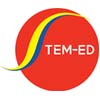
Southeast Asian Ministers of Education Organization Regional Centre for STEM Education (SEAMEO STEM-ED), Thailand
SEAMEO STEM-ED was established in 2019 to develop and continuously strengthen capacities and advocate evidence-based policy research as well as provide policy recommendations in STEM education within Southeast Asian countries. The Centre fulfills this mission through capacity building of and partnerships with policymakers, professionals, practitioners, and private sector and serving as a regional knowledge repository and creator of highly quality research in STEM education in a way that builds evidences of good practices, demonstrates pragmatic solutions, and guides effective policy formulation.
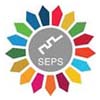
SEAMEO Regional Centre for Sufficiency Economy Philosophy for Sustainability (SEAMEO SEPS), Thailand
Recently established and hosted by the Ministry of Education of Thailand, SEAMEO SEPS was established to cater to the regional needs of promoting the philosophy, principles and values of the Sufficiency Economy as an instrument for achieving Sustainable Development Goals (SDG) among Southeast Asian countries. The Sufficiency Economy Philosophy (SEP) is a fundamental principle developed by His Majesty the Late King Bhumibol Adulyadej in the 1970s, based on the foundational traits of moderation, reasonableness and prudence adding knowledge and virtue as guidelines for living.
GOLD PARTNERS
Wiley empowers researchers, learners, universities, and corporations to achieve their goals in an ever-changing world.
For over 200 years we have been helping people and organizations develop the skills and knowledge they need to succeed. We develop digital education, learning, assessment, and certification solutions to help universities, businesses, and individuals move between education and employment and achieve their ambitions. By partnering with learned societies, we support researchers to communicate discoveries that make a difference. Our online scientific, technical, medical, and scholarly journals, books, and other digital content build on a 200-year heritage of quality publishing.
SILVER PARTNERS
The “Chevron Enjoy Science” is a seven-year $35 million public-private partnership program by Chevron Thailand Exploration and Production, Ltd. aimed at strengthening Thailand’s competitiveness and innovation by improving STEM education implemented by SEAMEO STEM-ED. The project strives to create enduring educational networks and sustaining the project’s impact, advocate evidence-based educational reform and collaborate with regional governments, strengthening regional STEM education.
BRONZE PARTNERS
The Department of Education (DepEd) is the national government agency responsible for ensuring access to and improving the quality of basic education in the Philippines. The Department formulates, implements, and coordinates policies, plans, programmes and projects in the areas of formal and non-formal basic education. DepEd’s current battlecry, Sulong EduKalidad, focused on four policy reforms in basic education: (1) K to 12 curriculum review and update, (2) improving learning environment, (3) teachers upskills and reskills, and (4) engagement of stakeholders for support and collaboration.
SUPPORTING PARTNERS
An initiative of MIT and Community Jameel, the Abdul Latif Jameel World Education Lab (J-WEL) works with the member organizations to promote excellence and transformation in education at MIT and worldwide. We engage educators, technologists, policymakers, societal leaders, employers, and employees through online and in-person collaborations, workshops, research, and information-sharing events. J-WEL member organizations work with MIT faculty and staff to address global opportunities for scalable change in education.
Akadasia is a Singapore based mission driven EdTech business which aims to Empower Educators Everywhere. By subscribing to FREEJOO & FREEJOO Studio, educators get access to:
- Several Continuing Professional Development (CPD) courses enabling them up-skill & re-skill themselves with new pedagogical & technical skills needed to teach the Gen-Z learner &
- Digital tools needed to design engaging lessons for their learners – quickly, easily & most importantly, in the language of their choice.
Asia-Pacific Centre of Education for International Understanding (APCEIU) is a Category 2 Centre established in 2000 by the Agreement between the Government of the Republic of Korea and UNESCO to promote and develop Education for International Understanding, currently regarded as Global Citizenship Education (GCED). APCEIU plays a pivotal role in promoting GCED reflected in both the UNESCO Education 2030 and UN Sustainable Development Goals.
ARNEC: connecting partners for early childhood in the Asia-Pacific region
The Asia-Pacific Regional Network for Early Childhood (ARNEC) aims to build partnerships in the Asia-Pacific region to advance the agenda on—and investment in—early childhood. ARNEC promotes cross-country collaboration and the importance of a multi-sectoral approach to ECD with an emphasis on the needs of the most vulnerable young children.
BCCIE is a provincial Crown corporation that supports the internationalization efforts of BC's public and independent K-12 schools, public and private colleges and universities and language schools. It promotes international education in and for BC, to enhance BC’s international reputation for quality education, and to support the international education activities of the provincial government.
The Center for Integrated STEM Education (CISTEM, Inc.) is a non-profit organization committed to create a culture of inquiry and innovation for nation-building through capacity-building for teachers and educational institutions, curriculum innovations, learner empowerment, learning resource development, research, and government-industry-education (GIE) partnerships. It has partnered with SEAMEO, MIT JWEL, US SLA, SEAMEO STEM-ED Centre, and Unilab Foundation for its STEM initiatives in the region.
The Global Education Monitoring Report is an editorially independent report, hosted and published by UNESCO, established in 2002. Since 2015, it has the mandate from 160 governments to monitor and report on: (1) progress on education in the Sustainable Development Goals (SDGs), with particular reference to the SDG 4 monitoring framework and (2) the implementation of national and international strategies to help hold all relevant partners to account for their commitments.
Focusing on SDG 4, UNESCO-ICHEI utilizes the potentials of ICT to support UNESCO member states in Asian and African regions to enhance the quality of higher education and promote the educational equity with inclusiveness by incorporating Shenzhen’s advanced technological sector and China’s rich experience in the massification of higher education.
Kenan Foundation Asia works with the Thai education system to inspire students, develop skilled teachers, and grow strong school leaders. Our goal is to ensure every kid receives a 21st century education and is prepared for the careers of tomorrow. To create lasting change, Kenan does not only offer educational programming to inspire students, but also to build skilled teachers and grow strong principals.
Since its inception in 1972 by the government of Republic of Korea, the Korean Educational Development Institute (KEDI) has been conducting extensive scientific studies on education with a view to bringing innovation and reform to the Korean education system. In pursuit of translating evidence-based research into evidence-informed policy, KEDI lends support, expertise and guidance to relevant stakeholders to ensure they offer and/or receive good-quality education in the domains of primary, secondary and higher education.
The Philippine Normal University is the National Center for Teacher Education by virtue of Republic Act 9647. It is the Lead Convener of the National Network of Normal Schools and the Founder and Permanent Secretariat of the ASEAN Teacher Education Network. PNU aims to nurture innovative teachers and education leaders.
To celebrate the 60th birthday anniversary of Her Royal Highness Princess Maha Chakri Sirindhorn in 2015, the Teachers’ Council of Thailand under the Ministry of Education requested Her Royal Highness’s permission to establish and international award named “Princess Maha Chakri Award” in honour of the Princess dedication in education development. The Award is also to recognize and honour highly dedicated teachers who make significant contributions to education and human development, to support and develop teaching professional, and to strengthen international relations in the field of education.
Sukhothai Thammathirat Open university (STOU) was officially established by Royal Charter on 5 September 1978 as Thailand’s eleventh state university. STOU was the first university in Southeast Asia to apply the distance learning system. This system expanded the role of higher education in Thailand by engaging learners who previously had no opportunity to further their education. STOU has developed a self-learning material based on an open environment, a virtual learning environment and a blended learning environment for non-degree teaching and learning program as well.
Office of the Higher Education Commission: OHEC has established Thailand Cyber University Project (TCU) in 2005 in order to provide an E-learning services for all general students and people from any educational and occupational background, by using Inter-University Network: UniNet, to make tertiary education becomes more accessible for people, and start creating the foundation of a knowledge-based society.
As an autonomous agency under the direction of the Thai Ministry of Education, IPST is responsible for the development and improvement of science, mathematics and technology curriculum and instructional resources at the basic education level, aiming at enhancing student’s learning and improving quality of teaching in Thailand to be on a par with international standards.
Unilab Foundation Inc. is the corporate foundation of United Laboratories, Inc. We create an enabling environment for inclusive development through social innovations and impactful programs that will improve the mental health and well-being of young Filipinos, nurture integrated STEM learners and innovators and improve the active participation of the youth in promoting good health and well-being of Filipinos. Through the years, we have continued to convene like-minded groups and individuals – from international NGOs to local volunteer groups, from the government to private institutions, from Chief Executive Officers to barangay health workers. Through bayanihan, we can build a healthier and more future-ready Philippines, one person, one community at a time.
Universitas Terbuka (UT) is established with Presidential Decree Number 41 of 1984 on 4 September 1984 as the 45th state university. UT is entirely using distance education mode of learning. UT has been designed to be a flexible and inexpensive university focusing on serving people who lack the opportunity to attend face-to-face mode of higher education system due to various constraints, including lack of funding, living in isolated and rural areas, and work as well as other commitments. The UT system has also continued to evolve and improve in terms of its teaching and learning systems, management, and support services for students. Currently UT provides four faculties with 44 study programs (Diploma, Bachelor’s, Master’s, and Doctoral Degree) and has 302.000 students living across the nation and in more than 40 countries.
The University of the Philippines Open University (UPOU) is one of the constituent units of the University of the Philippines, the only national university in the country. Established in 1995, UPOU has been mandated to democratize access to quality higher education through distance education and should be at the forefront in the use of modern ICTs to fulfill this mandate. UPOU is a recognized leader in open Distance elearning (ODeL) in the country and in the region.
Founded in 1973 as a comprehensive university covering diverse fields, the University of Tsukuba’s roots extend back to 1872 as modern Japan’s first institution of higher education. We are a leading research-intensive university that was founded on the principles of “being open to the global society” and “pursuing trans-disciplinary research and education” and are the anchor institution of Japan’s premier science city.
Worlddidac is the only global trade association for the educational resources industry. We work equally with all education sectors, all countries and all relevant national associations endeavoring to improve education globally by connecting our members with like-minded stakeholders within the Education Industry. We are a global organization well networked throughout the education sector.

